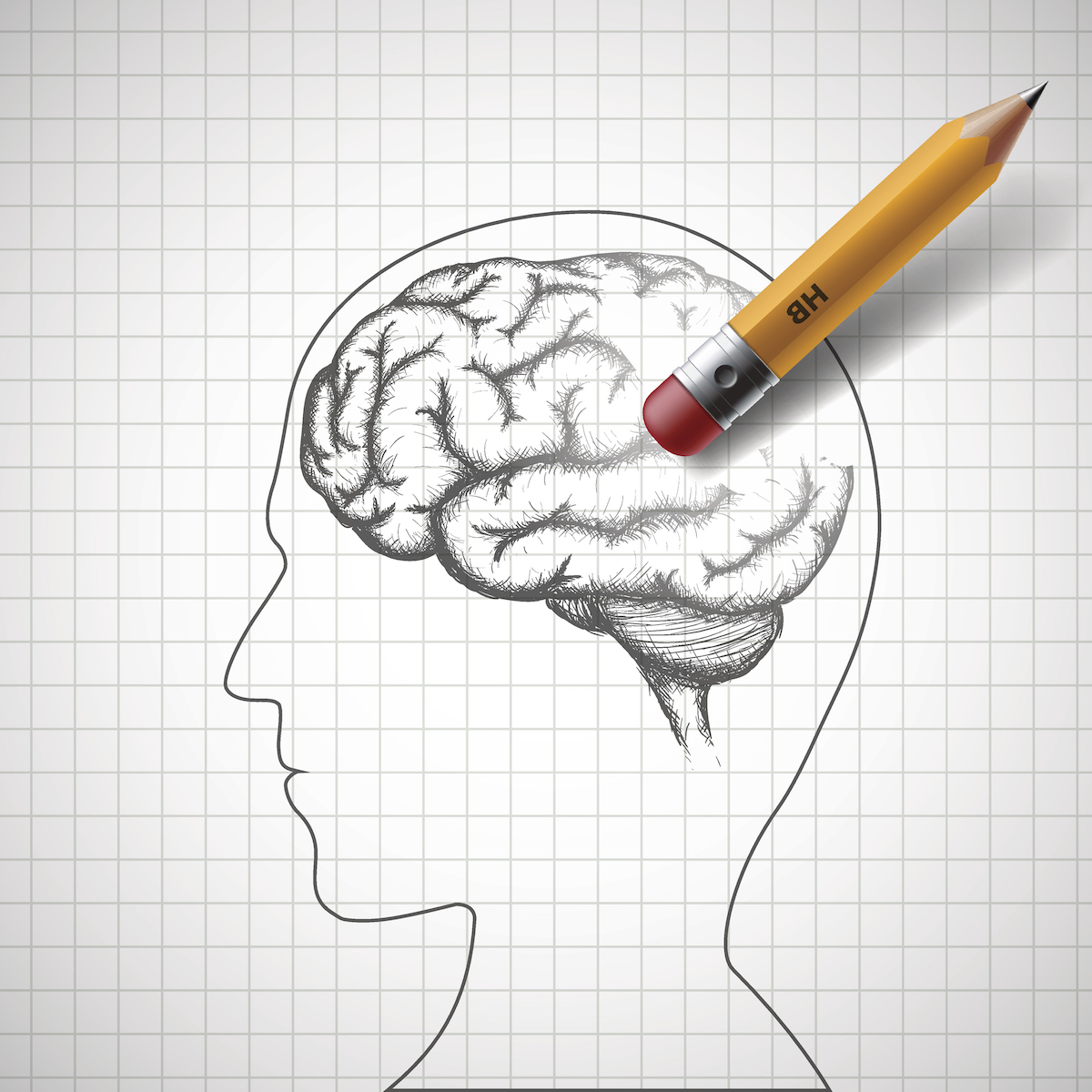
We’ve known that there’s a link between Alzheimer’s and plaques that form in the brain. With the increasing amount of research that goes into Alzheimer’s, we can now say that those plaques may originate from infections and the brain’s defense mechanism against those infections.
The Brain May Be Harming Itself
By studying animal models, researchers have discovered that when an infection attacks the brain, the brain uses a protein called amyloid-beta or Aβ to combat that infection. (1) Aβ is supposed to aggregate at the site of the infection to trap the offending microbes. However, if the protein forms incorrectly and the body can’t repair or degrade it, the proteins build up and eventually form the plaques associated with Alzheimer’s. (2) The older the brain gets, the more difficult it may be to clean out the badly formed proteins.
It’s unknown how or why these proteins misfold, but their presence is also linked to other neurodegenerative diseases like Parkinson’s disease, sickle cell disease, and type 2 diabetes. (3) The link between protein misfolding and disease prompts the question: Is it possible that protein misfolding occurs because of a faulty or inefficient immune system? Can we say that the root cause of Alzheimer’s lays in our immune system?
What We Can Do About It
Since we can now say that Alzheimer’s might be linked to infection, we could potentially combat these infections and Alzheimer’s itself by giving our immune system a proper support. If we have a lot of things bogging down our immune system (allergies, sinuses, poor dental or gut health, and so on), our immune system won’t be capable of dealing with the big problems. Our immune system’s resources would be spread too thin.
About 70% of our immune system is located in our gut, so it stands to reason that one of the best tools we can use to strengthen our immune system is our diet. If you doubt that our diet can help against mental diseases, consider the fact that researchers have found a link between diet and the brain. Studies done on the gut microbiome have observed the effect that gut bacteria have on the brain. We’ve seen in animal models how mood, repetitive behaviors, and stress-related neurological conditions like anxiety and depression are affected by the ingestion of specific kinds of bacteria. (4) Exposure to good bacteria in raw vegetables and high-quality probiotics like Probiotic Synergy™ could rebalance the gut microbiome and alter our risk factor for mental conditions. We could use our diet to support our immune system against a disease like Alzheimer’s.
We’ve even already seen the way that bacteria and antibiotics may affect psychosis. Several years ago, a man with schizophrenia was prescribed an antibiotic to treat his pneumonia, and it resolved his psychosis symptoms as well. (5) While the connection between antibiotics and schizophrenia isn’t fully understood yet, the connection is there, and it suggests that bacteria is responsible for our mental health.
With so much of our immune system in our gut, the bacteria in our diet may provide immunological support for diseases like Alzheimer’s as well as other mental conditions like anxiety, depression, and other neurodegenerative disorders. If our microbiome is the root cause of such conditions, it may be a deficiency of certain bacteria that allows for protein misfolding and the buildup of the Aβ plaques associated with Alzheimer’s.
Dietary changes that may provide support for Alzheimer’s include:
Avoiding trans fat, sugar, and gluten, as they are all linked to Alzheimer’s. High levels of sugar, especially fructose, could desensitize your brain and prevent it from correctly signalling your body to produce insulin. The incorrect production of insulin could impair memory and thinking as a result. Gluten negatively affects the blood-brain barrier and weakens the gut, allowing proteins to enter your bloodstream where they shouldn’t, subsequently triggering overactive immune responses.
Consuming healthy fats, including omega-3. You can find these in organic sources like butter made from grass-fed milk, coconut oil, avocados, raw dairy, raw nuts, eggs, and grass-fed meats. Omega-3 fats in particular, like our OmegAvail™ Liquid, may prevent the deterioration of cells linked to Alzheimer’s.
Increasing your levels of magnesium and vitamin D. Research suggests that higher levels of magnesium decrease a person’s risk for Alzheimer’s. Vitamin D, as can be found in Hi-Po Emulsi-D3™, may support the production of chemicals necessary for strong brain cells.
Improving the variety of bacteria in your gut by eating fermented food and avoiding processed foods, antibiotics, and water high in fluoride or chlorine. Try taking probiotics as well, particularly Lactobacillus plantarum, E. coli nissle, and Bifidobacteria longum.
Changes like these may strengthen our immune system and support its fight against the infections that trigger the Aβ plaques linked with Alzheimer’s. Lifestyle changes like the following may also be beneficial:
Avoiding heavy metals. Heavy metals might be linked to Alzheimer’s and other diseases. Most flu vaccinations contain mercury and aluminum, so consult your physician before receiving one.
Exercise regularly. You should get at least 30 minutes of exercise each day.
Get enough sleep, between 7 and 9 hours depending on what you need.
Stimulating your brain by taking on mentally challenging activities.
While we may not have a cure for Alzheimer’s yet, we are understanding it better with each passing day. Our suggestions may lower your risk or a loved one’s risk for Alzheimer’s. Be sure to consult a physician before making any major changes to your diet or lifestyle.
Sources:
http://www.huffingtonpost.com/medical-discover-news-/an-infectious-cause-for-a_b_12048050.html
https://www.nia.nih.gov/alzheimers/publication/part-3-ad-research-better-questions-new-answers/looking-causes-ad
http://www.jbc.org/content/early/2012/08/09/jbc.R112.399378.full.pdf
http://www.kavlifoundation.org/science-spotlights/mind-bending-power-bacteria#.WCj2W_krLIV
http://www.independent.co.uk/news/science/scientists-shocked-to-find-antibiotics-alleviate-symptoms-of-schizophrenia-7469121.html

